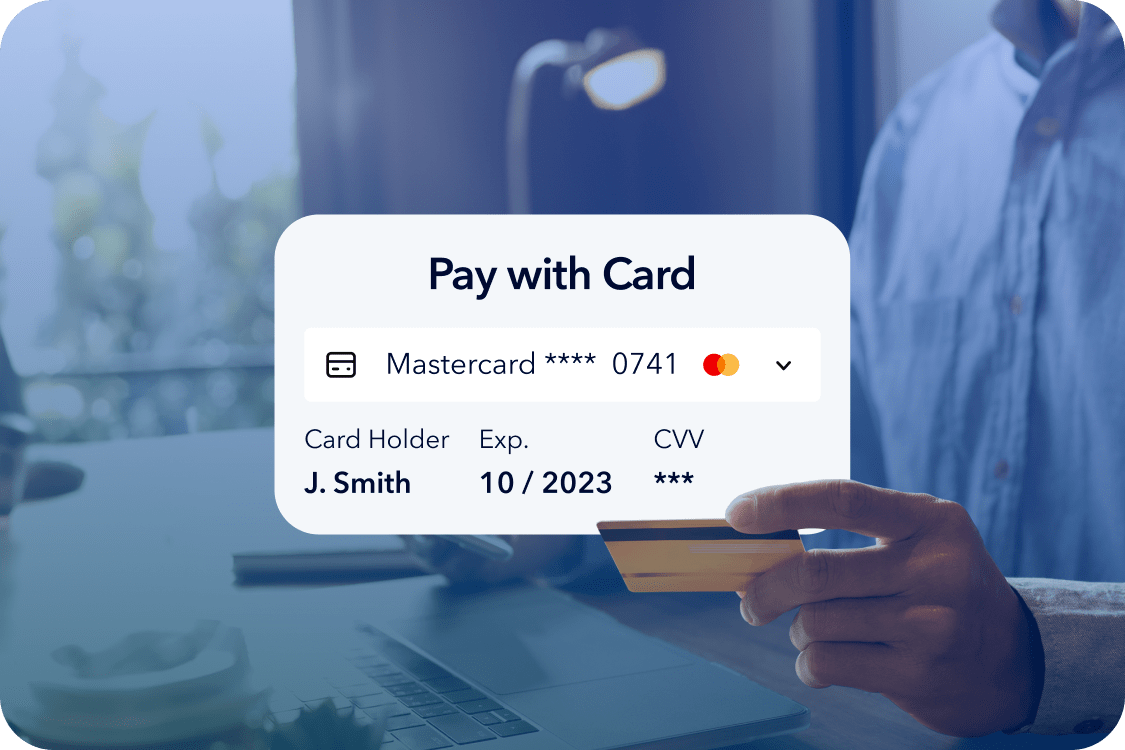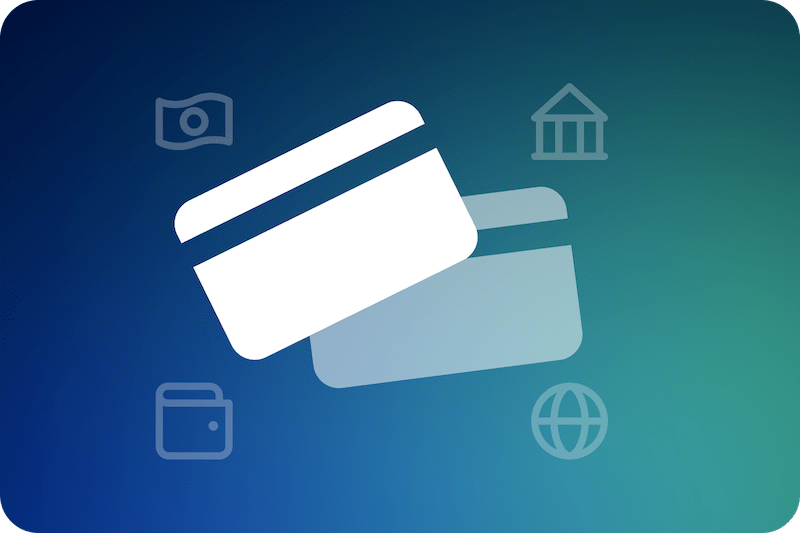The benefits of accepting credit cards for your business (plus the disadvantages)
Accepting credit cards has many benefits, like increased sales and convenience. However, there are also potential downsides to consider.

As our digital economy moves towards a cashless society, staying updated with technology is crucial for every business. And Accepting credit cards can benefit your business by increasing cash flow and retaining more customers. However, despite its advantages, there are some downsides also worth knowing.
Let's explore whether accepting benefits of accepting credit cards for your business makes it worthwhile for you.
Accepting credit cards: how it works
Nearly 1.25 billion people, or about 16% of the global population, have credit cards. As this number grows, accepting credit cards becomes essential for providing convenience to customers and merchants.

Merchant account setup
To accept credit card payments, businesses need a merchant account, which acts as a liaison between the business, the customer’s credit card issuer (like Visa or Mastercard), and the payment processor. This account facilitates the transfer of payments from the credit card issuer to the merchant’s account.
Payment gateway integration
Once the merchant's account is set up, businesses integrate a payment gateway into their systems. This gateway securely authorizes transactions by encrypting sensitive data like credit card numbers, and linking the merchant’s POS system or website with credit card networks.
Transaction processing and fees
When a customer makes a purchase, the payment gateway sends transaction details to the credit card networks for verification and fund availability. Approved payments are processed, and businesses typically pay processing fees, which vary based on the card type, transaction volume, and merchant agreement.
Benefits of accepting credit cards
While change is often tricky, businesses feel pressured to adjust to spending trends or risk being left behind. About 83% of Canadians hold at least one card, the highest rate globally. Below are nine advantages of accepting credit cards for your business.
Enhanced customer trust
Businesses that accept credit cards are seen as more credible and trustworthy, while customers feel safer carrying cards than cash, which makes them more likely to spend.
Better accounting processes
Credit card payments merge seamlessly with accounting software, reducing manual data entry and errors. Detailed financial reports also provide more accurate forecasting and budgeting, allowing you to reach your goals faster.
Faster transactions + improved cash flow
Transactions are processed quickly, reducing the queue at checkout points and keeping customers happy.
Faster transactions mean quicker deposits into your bank account.
Accepting credit cards, in general, leads to more consistent sales and deposits, smoothing out revenue waves and aiding with financial planning.

Expanded customer base
Some customers exclusively use credit or debit cards, so accepting these can expand your customer base. For example, Millennials and Gen Z prefer digital payments, so accepting cards aligns with their preferences.
Increased security — both for you and your customers
Fraud protection: The benefits of accepting credit card payments also include fraud prevention. Credit card companies invest heavily in security measures to detect and prevent fraud, reducing the strain on businesses to handle it by themselves.
Chargeback protection: While chargebacks are a valid concern, the protocol for handling disputes is standardized and protects both the customer and the business (under specific circumstances).
Market expansion + retain customers
Credit cards facilitate sales across borders, opening international markets without the burden and complexity of currency exchange. In many industries around the world, credit card acceptance is preferred. Not offering it can put your business at a competitive disadvantage.
Many credit card processors also offer programs with flexible payment options that can help increase the likelihood of customer retention and satisfaction.
Marketing advantages
Credit card transactions allow businesses to analyze customer spending habits and preferences. This data can be used to create marketing strategies and offers, increasing ROI. As a business owner, it’s crucial to stay in the loop and continuously grow.
Operational flexibility
Credit cards are easily integrated with mobile payment systems, allowing businesses to conduct transactions anywhere with just a tap or swipe, including terminals at pop-up locations. And for businesses that attract tourists or international clients, accepting credit cards means easy currency conversion at the point of sale, making your life much simpler.
Risk mitigation
Lowering the amount of cash on your premises minimizes the risks associated with theft or mismanagement. Electronic transaction records provide an extra layer of protection, AKA a clear audit trail, which helps resolve disputes and track business performance.
Cash flow and convenience
Benefits also include better cash flow by speeding up the payment process. Customers appreciate the ease of paying with credit cards, and offering multiple forms of payment options increases sales. This also can improve your working capital and AR turnover ratio.
Cons of accepting credit cards
While taking credit cards is a dominant transaction method, you're probably wondering if it's right for you.
Here are the cons of accepting credit cards:
Transaction fees
Interchange fees are a part of every credit card transaction. For small businesses, these fees can dip into profit margins. Besides transaction fees, many businesses also face monthly fees, setup, and payment gateway fees, depending on their merchant services provider. Invoices add up, so having a plan in place is essential.
Disputes and chargebacks
If a customer disputes a transaction, the money is withdrawn from your account until it's resolved, which affects your incoming cash. If you don't meet security standards, major credit card companies could also hold you accountable for fraudulent transactions, inevitably leading to financial loss.
Regardless, though, it is a common practice among reputable businesses to honor disputs if they're deemed legitimate.
Technology dependence
Hardware malfunctions, software glitches, and internet connectivity issues disrupt the ability to process credit card payments, potentially spelling out fewer sales.
Making your choice
Deciding to accept credit cards is up to you and your business needs. With customers carrying less cash, many rely on credit cards for everyday purchases, proving it's more than just a trend. If you want your business to thrive, consider credit card acceptance with Plooto, your dynamic go-to for managing finances.
Learn more about accepting credit cards and other payment types

A full guide to B2B payments: Methods, types, and trends
Effectively managing payments is critical to business operation, cash flow, and business relationships.

Your complete guide to understanding EFT payments
Learn exactly EFT payments are and gain the confidence you need to starting using them.

ACH vs. EFT: How are they the same and different?
Uncover the similarities and distinct differences, and understand how they impact your financial operations and decision-making.

How to accept credit cards for your small business
Today, accepting credit cards is simple, easy, and secure. Learn more about how to set it up for your business today.
Table of contents
How accepting credit cards works Benefits of accepting credit cards
Sign up in minutes.
Start saving hours.
Manage all of your payments in one platform. No jumping between apps necessary.
Start free trialStart accepting credit cards for your business today — entirely free
Plooto's credit card acceptance speeds up your entire receivable process, improving cash flow and gaining better visibility into your business vitals.
Start free trial